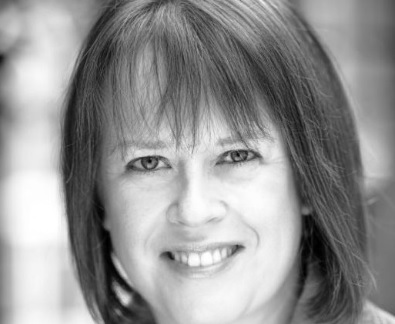Creating a food-based circular economy for Yorkshire

In the final article in partnership with TheBusinessDesk.com supporting the York, North Yorkshire and East Riding Local Enterprise Partnership’s Local Industrial Strategy development, Sarah Hickingbottom, chief executive at BioVale, shares her thoughts on why Yorkshire can lead the transformation to a circular economy in the regions food production sector.
Food is big business in York, North Yorkshire and the East Riding. In fact, food manufacturing makes up about 20% of our GVA. With this great asset comes great responsibility, yet globally about one-third of food production is never eaten. Talk about waste. Some of it rots in our fridges but much is lost on the farm or at the food manufacturer.
Imagine what we could do if instead of waste, we saw opportunity? Instead of straight lines with land-fill and incinerators, we saw circles. A ‘Circular Economy’. We may think we’re being future thinking, but for centuries people have said (to paraphrase) ‘today’s waste is tomorrow’s raw material’.
In fact, soap was first produced at industrial scales to make money from waste vegetable oils and animal fats. But despite this, we still live in a world full of waste. If we want to feed everyone affordably, tackle climate emergency and face water/resource challenges head-on, we must maximise the value we extract from our precious land.
At BioVale, we’re working with scientists, agriculturists and entrepreneurs creating the technologies and businesses best placed to either: re-design our agriculture and food production to operate without waste being created; or – if unavoidable – use food waste as a valuable raw material to manufacture something else, such as gin, clothes, MDF-replacement materials or even medicines.
If a circular economy approach to food production is to be embraced anywhere, it should be right here. In our region. Not only do we have the agricultural and food manufacturing base, we have the knowledge and expertise. Our universities and private research centres lead the world in crop development, robotics and the industrial techniques needed to convert food waste (even that found in your home’s black bins) into chemicals, plastics and materials.
Do you agree? Get involved by giving your view on the YNYER LEP website.
For example, BioVale’s Significant Interest Group in Anaerobic Digestion, regularly brings together scientific research, industry and farmers to swap best practice, share ambition and work to increase our region’s productivity. The N8 AgriFood project is a major collaboration, run by the University of York, with universities from across the north. And the Biorenewables Development Centre (BDC) at Dunnington is an open-access, scale-up centre with the equipment and experts needed to make using food waste possible.
The BDC has proven the concept of using pasta-cooking water to produce anti-fungal drugs; bread waste to produce antibiotics; and even ice-cream by-products to produce bioethanol. Now we need to work together as a region to develop these concepts into industrial best practice.
Given all this innovation and manufacturing, Yorkshire is excellently placed to become an internationally recognised hub for such a food-based circular economy. We can attract research partners, investors and entrepreneurs to work alongside our farmers and food manufacturers. And so drive jobs, clean growth and address the world’s challenges.
It won’t be easy. We’re lacking affordable start-up space, manufacturing space, entrepreneurial support and commercial scale-up investment. But we’ve all the fundamental, intractable assets in place. And – most importantly – we’ve the ambition. BioVale is working with key stakeholders to plug our ‘entrepreneurial gap’ so join us (www.biovale.org), work with us and watch this space.
Do you agree? Get involved by giving your view on the YNYER LEP website.









